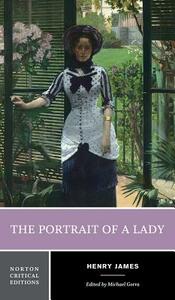Take a photo of a barcode or cover
challenging
dark
emotional
reflective
slow-paced
Plot or Character Driven:
A mix
Strong character development:
Yes
Loveable characters:
Yes
Diverse cast of characters:
N/A
Flaws of characters a main focus:
Yes
challenging
emotional
reflective
sad
slow-paced
Plot or Character Driven:
Character
Strong character development:
Complicated
Loveable characters:
Yes
Diverse cast of characters:
No
Flaws of characters a main focus:
Yes
Obviously fuck Gilbert Osmond, but also fuck Caspar Goodwood
challenging
relaxing
slow-paced
Plot or Character Driven:
A mix
Strong character development:
No
Loveable characters:
No
Diverse cast of characters:
No
Flaws of characters a main focus:
Yes
if it’s a portrait of a lady why do I know nothing about her
It was a drama that kept me interested to know what was going to happen next.
***Spoilers***
That being said, I hate a good cliffhanger. I hate not knowing - does she go back to her shitty husband because she promised his mistress's daughter that she would? Or does she go back to rescue the daughter from her shitty father and return to Goodman? I hate not knowing.
***Spoilers***
That being said, I hate a good cliffhanger. I hate not knowing - does she go back to her shitty husband because she promised his mistress's daughter that she would? Or does she go back to rescue the daughter from her shitty father and return to Goodman? I hate not knowing.
reflective
slow-paced
Plot or Character Driven:
Character
Strong character development:
Yes
Loveable characters:
No
Diverse cast of characters:
No
Flaws of characters a main focus:
Yes
American Isabel Archer is brought to Europe by her wealthy aunt, where she finds herself awash in suitors but determined to carve an independent life for herself.
This feels like two separate books and it’s weird and I’m frustrated. The first half is interesting, if not exactly riveting, with an endearing heroine and compelling relationships. Then, halfway through the book, we get a time skip and Isabel, who previously said she may never marry, is suddenly marrying, and I never really believed any of the post factum reasoning for why that pivot happened. Then the rest of the book…sucked. Like pretty bad. And the most interesting character, with whom Isabel had the most interesting relationship, basically disappeared.
I get that the end of the book sucked because she entered a sucky marriage and it’s supposed to suck. I could have—and did for a while—get on board with that. But then at the VERY end, everything we’ve spent the last 600 pages building is struck down. The ending is ambiguous, sure, and in the frantic googling I did after I finished (“wtf is with the end of portrait of a lady?” mostly) I found some extremely generous interpretations that would make for an acceptable ending…but, I’m sorry, I think those people were reaching and the end actually just sucks and left me feeling extremely suspicious about what the book is trying to say, especially about women. So. Yeah. Whomp whomp.
dark
emotional
reflective
relaxing
tense
medium-paced
Plot or Character Driven:
Character
Strong character development:
Yes
Loveable characters:
Complicated
Diverse cast of characters:
No
Flaws of characters a main focus:
Yes
challenging
emotional
funny
inspiring
reflective
sad
slow-paced
Plot or Character Driven:
Character
Strong character development:
Yes
Loveable characters:
Yes
Diverse cast of characters:
Yes
Flaws of characters a main focus:
Complicated
The Portrait of a Lady had me confused all the while I was reading it. As a matter of fact, it still has me confused. This novel gives me all kind of ambiguous and contradictory sensations, and I’m still not sure what to make of it.
One of top reviews here in Goodreads compares the experience of reading this book to the one of going to the gym after a long, tiresome day, and I find the metaphor only too fitting. This novel, with its 500 pages, took me so long to read, mainly because picking it up was a kind of sacrifice; it’s a hard, dense book that often drags. And here is where the first contradiction appears, because it’s a book that for me was extremely hard to start, but also extremely hard to put down . The ultra-descriptive style of Henry James makes for both a nuisance and a delight. Once you have gathered the strength of will necessary to choose reading it over, let’s say, watching an episode of your favourite show, the book becomes a pleasure to read. For instance, the first part, with its luxurious and detailed account of the quiet life at Gardencourt, transmits such a sense of calm and coziness that I couldn’t help but feel warm and fuzzy.
The main contradiction I find in The Portrait is that I can’t decide whether I’m reading a proto-feminist piece or a traditionally misogynist one. On one hand, the character of Isabel is so modern; she’s alive with curiosity, intellectual inquiries, and a refreshing appreciation for her freedom. Most of her suitors and her cousin Ralph seem to be delighted with her uncanny personality. On the other hand, some characters, especially the odious Gilbert Osmond, seem to find she has “way too many ideas of her own”. And it would be easy to declare these ideas as proto-feminist, because most of the misogynistic vibes comefrom “the bad team” characters. However, the problem is that at times there’s a slight feeling of judgement passed on Isabel and her attitude, subtle and not explicitly shown. I’m still trying to make my mind about this one.
Despite all these contradictions, I still enjoyed the novel, and would recommend it to those interested in the peculiar way of writing, and Henry James’ use of character development. And one last thing: Ralph Touchett <3.
She had long before this taken old Rome into her confidence, for in a world of ruins the ruin of her happiness seemed a less unnatural catastrophe.
One of top reviews here in Goodreads compares the experience of reading this book to the one of going to the gym after a long, tiresome day, and I find the metaphor only too fitting. This novel, with its 500 pages, took me so long to read, mainly because picking it up was a kind of sacrifice; it’s a hard, dense book that often drags. And here is where the first contradiction appears, because it’s a book that for me was extremely hard to start, but also extremely hard to put down . The ultra-descriptive style of Henry James makes for both a nuisance and a delight. Once you have gathered the strength of will necessary to choose reading it over, let’s say, watching an episode of your favourite show, the book becomes a pleasure to read. For instance, the first part, with its luxurious and detailed account of the quiet life at Gardencourt, transmits such a sense of calm and coziness that I couldn’t help but feel warm and fuzzy.
She was always planning out her development, desiring her perfection, observing her progress. Her nature had, in her conceit, a certain garden-like quality, suggestions of perfume and murmuring boughs, of shady bowers and lengthening vistas, which made her feel that introspection was, after all, an exercise in the open air, and that a visit to the recesses of one’s spirit was harmless when one returned from it with a lapful of roses.
The main contradiction I find in The Portrait is that I can’t decide whether I’m reading a proto-feminist piece or a traditionally misogynist one. On one hand, the character of Isabel is so modern; she’s alive with curiosity, intellectual inquiries, and a refreshing appreciation for her freedom. Most of her suitors and her cousin Ralph seem to be delighted with her uncanny personality. On the other hand, some characters, especially the odious Gilbert Osmond, seem to find she has “way too many ideas of her own”. And it would be easy to declare these ideas as proto-feminist, because most of the misogynistic vibes comefrom “the bad team” characters. However, the problem is that at times there’s a slight feeling of judgement passed on Isabel and her attitude, subtle and not explicitly shown. I’m still trying to make my mind about this one.
The real offence, as she ultimately perceived, was her having a mind of her own at all. Her mind was to be his – attached to his own like a small garden plot to a deer-park. He would rake the soil gently and water the flowers; he would weed the bed and gather an occasional nosegay. It would be a pretty piece of property for a proprietor already far-reaching. He didn’t wish her to be stupid. On the contrary, it was because she was clever that she had pleased him. But he expected her intelligence to operate altogether in his favour, and so far from desiring her to be a blank he had flattered himself that it would be richly receptive. He had expected his wife to feel with him and for him, to enter into his opinions, his ambitions, his preferences.
Despite all these contradictions, I still enjoyed the novel, and would recommend it to those interested in the peculiar way of writing, and Henry James’ use of character development. And one last thing: Ralph Touchett <3.
I liked it but it was hard to feel like all these proposals and marriages weren’t just plot devices. No one had any chemistry and so it was difficult to understand why this woman was beating them off with a stick and yet they kept coming back.
Interesting themes and very well written though.
Interesting themes and very well written though.



